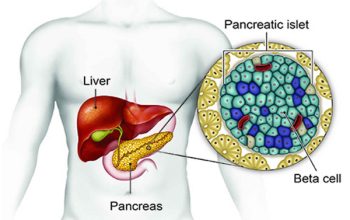Diabetes is an underlying health condition commonly found in people of all ages in the world. Diabetes is a condition that influences the way our body processes sugar. One can say that an increased amount of sugar in the blood.

The most common type of diabetes is
- Type 1 Diabetes
- Type 2 Diabetes
- Pre-diabetes
- Gestational Diabetes
Lifestyle changes, eating habits, and stress affects the working of the body. But, now a day’s people started concerned about their health and trying method that is fruitful to health. Intermittent Fasting is one method or can say evolving trends that people want to know and apply. To understand how Intermittent Fasting is helpful, let’s see what it is?
What is intermittent fasting?
Intermittent fasting works on our eating habits and changes the way we eat food. It defines the ‘time’ of eating, not the ‘menu’ of eating. It is about extending the gap between meals. It creates problems in the beginning, especially if the person thinks about the food but reduces with time and effort.
The person became used to it and found it is easy to follow. There are various intermittent fasting methods; all of the methods break the day or week into the eating period or called the fasting periods.
There is a time gap between the meals and food items such as water, coffee or tea, or small low-calorie food during the fasting period. Many scientific methods encourage ways of doing Intermittent Fasting. Most common are:
- The 16/8 method:
It involves fasting for 16 hours continuously, then eating the meal. After the meal, create a gap of 8 hours, then eating the meal. It is the most popular and recommended method. People generally do not eat at night. It is about taking that period as a fasting period, extending it by skipping breakfast and eating at noon, creating a gap of eight hours, and eating at dinner. The person can take tea, water, coffee, or any low-calorie drink between the time gap.
- Eat-Stop-Eat:
It is a 24 hour fast where the person does not eat for continuous 24 hours. It is like creating a gap between one dinner times to another dinner time.
- The 5:2 diet:
It can be work as dividing the week into two parts and first two days, eating only 500-600 calories in a row. Then after five days, he/she can eat normally.
Intermittent fasting and diabetes
The main question is that Is Intermittent fasting help in diabetes, or is it safe to use this method when the person has diabetes or does it work and lower down the blood sugar level or reduced medicine? Well, there is no proper answer. The American Diabetes Association disapproves of fasting for diabetes patients. However, some small studies show that fasting helps diabetes people, but it does not act as the primary treatment. A little research on three men with type 2 diabetes showed good signs while doing fasting.
The right signs include less insulin intake and other diabetes medicines. Research on obese type 2 diabetes men, and the result was good as they were able to lose weight and improve fasting glucose.
Another study on type 1 diabetic’s persons also show signs of improvement like lower insulin dose. However, there is no significant research that proves that Intermittent Fasting is helpful and recommended. When fasting in combination with healthy diets and lifestyle, it gives effective results.
But it may not be fruitful for a person with advanced diabetes or pregnant women who have gestational diabetes. Many findings suggested that a simple form of intermittent fasting may help the diabetes person improve from diabetes. It is not a cure, and it is just a preventive measure for use with care and planning. A person need not follow the advice of intermittent fasting on the sole basis.
Accurate information and diagnosis is a must before following the method of intermittent fasting. To know more, let’s see the benefits, risks, and precautions while doing intermittent fasting by diabetic patients.
Benefits of intermittent fasting for a diabetic person
Though there is no proven research that brings out the health benefits, small studies and personal improvement show signs of health benefits at individual levels. They are:
- It helps in controlling the AIC level. AIC level shows the average of 2-3 months of blood sugar control.
- It reduces the risk of heart disease as it helps in lowering the cholesterol level.
- It helps in reducing weight. Mainly, it is helpful for obese patients and can’t able to do workouts.
- It provides a break for the liver and pancreas, who work overtime for the diabetic person. The liver stores extra glucose consumed in more than 12 hours, and the pancreas makes insulin that controls blood sugar.
- The person has to plan fewer meals hence less headache and preparation time.
Risks involved for a diabetic person while doing intermittent fasting
There is risk involved when the person is following the pattern of intermittent fasting. Before following the intermittent fasting method, the person should aware of the risk factors. They are:
- The person may feel hunger, tiredness, mood swings like irritation or anger, and may also feel mild to severe headaches.
- The body shows signs of a lack of nutrients. Skipping a meal makes the person feeling a low energy level and disturbs body balance. It is especially harmful when the person is following a strict fasting pattern. This situation can be deal with by taking nutritional drinks or low-calorie nutrition food. It helps the person in dealing with the fast.
- It may also affect lower blood sugar or a situation called Hypoglycaemia. The person may feel signs of pass out, short breath, shakiness, or sometimes the person goes into a coma. If the person feels a starting sign of low blood sugar, it is best to take glucose gels or glucose tablets. Or can stop doing fasting.
- The person may also show a sign of high blood sugar or a situation called Hyperglycaemia. It can be because the person takes too many carbohydrates rich food after fasting. It increases the sugar in the blood. This situation can be deal with by planning for the meal ahead.
Precaution to take before following intermittent fasting
- Consultation from the doctors helps to know what is right for him and which method is best to follow. If the doctor says no, it is better not to observe the fasting. But if doctors support the technique, then a further suggestion for which method to follow, food to eat during a meal, nutrition to take during breaks, and medicine and supplements for an emergency.
- The person needs to watch the signs of low blood sugar. If he/she feels any signs, then taking the medicines or insulin intake is better or any recommended drugs. Ignoring the symptoms can lead to severe consequences.
- Planning food meals before helps the person reducing the risk of high blood sugar. The person needs to know which food is good and can’t include too many carbohydrates and calories. Expert or dietician opinions help the person in making the planned meal.
- Intense workout strictly not recommended or too much physical labor. In contrast, the person recommended restricting the workout sessions or work that involve too much energy. Avoid fasting those days when the person feels more stressed out.
- A diabetes person needs to be hydrated. Hydration is critical. Drinking water or non-calorie drinks helps the person in staying hydrated.
Conclusion
Though it is a simple way to burn fat and stop calorie intake, it involves risk and sometimes may create severe consequences. Age and diabetes severity also matter. Fasting is not for everybody. Over the year, in usage for religious purposes. It also has many health benefits.
Besides losing body weight to reduce diabetes complications, it also improves metabolic rate and overall health. Some researches show that they protect against many diseases such as heart diseases, cancer, Alzheimer’s, etc.
It is a new trend where a person has to plan a few meals hence less headache and preparation time. In short, eating healthy food and controlling the eating pattern in between the meals, and using the fasting method from time to time can provide many health benefits.
Intermittent fasting may improve overall health, but a person’s will and correct information are necessary before applying it. Many doctors disapprove of the fasting method.


